
2013 Short Story Board (8 Graphics): Public Intelligence in the Public Interest [OSE + M4IS2 + Panarchy = World Brain & Global Game = Prosperous World at Peace]
All Reflections & Story Boards, Architecture, Crowd-Sourcing, Culture, Design, Economics/True Cost, Education, Governance, Graphics, Innovation, P2P / Panarchy, Policies-Harmonization, Politics, Resilience, TransparencyBelow Graphics as 2013 Story Board Short (PPT): SHORT 1-8
INVITE Robert Steele to Speak & Nurture & Energize!
1957+ Story Board Long: Decision-Support — Analytic Sources, Models, Tools, & Tradecraft 1957-2013
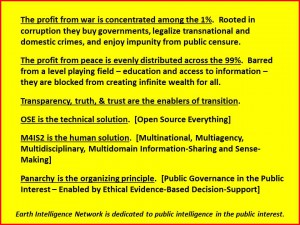
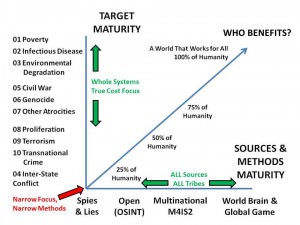
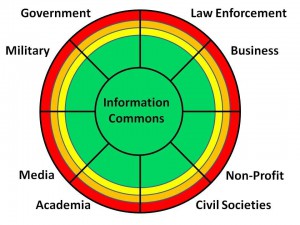
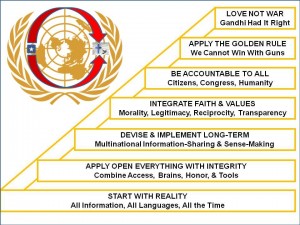
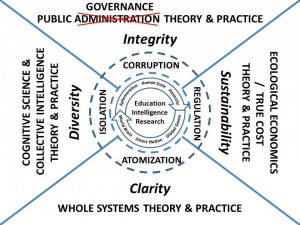
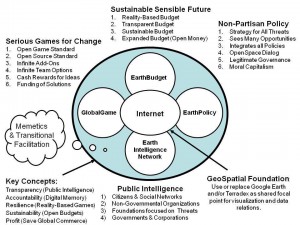
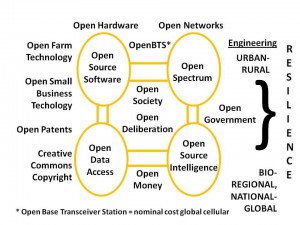
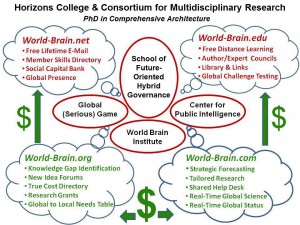
Robin Good: Exploring Curation as a Core Competency in Digital and Media Literacy Education
Culture, Design, Education, Innovation
How can content curation be used in education to support and enhance the development of new media literacy skills? Paul Mihailidis from the Department of Marketing Communication at Emerson College in tandem with James N Cohen from the School of Communication at Hofstra University, have outlined six different ways in which content curation can be utilized as a key methodology to develop critical thinking, analysis and communication skills. Their analysis is based on the actual use of Storify, a content curation tool, for specific educational objectives. Useful as a reference framework for introducing content curation within pedagogical programmes. 8/10
Abstract: In today's hypermedia landscape, youth and young adults are increasingly using social media platforms, online aggregators and mobile applications for daily information use. Communication educators, armed with a host of free, easy-to-use online tools, have the ability to create dynamic approaches to teaching and learning about information and communication flow online. In this paper we explore the concept of curation as a student- and creation-driven pedagogical tool to enhance digital and media literacy education. We present a theoretical justification for curation and present six key ways that curation can be used to teach about critical thinking, analysis and expression online. We utilize a case study of the digital curation platform Storify to explore how curation works in the classroom, and present a framework that integrates curation pedagogy into core media literacy education learning outcomes.
Teaching Points (expanded upon in cited work):
Teaching point #1 – Where top down and bottom up meet
Teaching point #2 – Integrating mediums, messages, platforms
Teaching point #3 – Sources, voices, and credibility online
Teaching point #4 – Framing, bias, agenda and perspective
Teaching point #5 – Appreciating diversity
Teaching point #6 – Empowering civic values and civic voices
Robin Good: Supermap of Over 400 Content Curation Services
Crowd-Sourcing, Culture, Design, Education, Governance, Knowledge, P2P / Panarchy, Politics, Software, Sources (Info/Intel)
If you are looking for your ideal content curation toolkit here is my new completely updated supermap, listing in over 30 categories all of the tools and services you may need to curate any content, from video to news. This new supermap includes all of the tools and services that were already listed on NewsMaster Toolkit, with the addition of 25 new tools and with a much better organization of categories and labels. My choice for organizing and recreating this supermap has now fallen on Pearltrees, the only content curation tool that can easily handle most of my key requirements for such a large collection of tools. Nonetheless there are over 400 tools listed in this supermap, Pearltrees makes it a breeze to navigate through them, and to add new ones to the relevant branches. The supermap is now being updated daily.
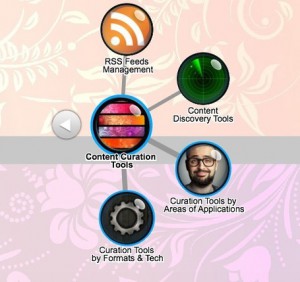
P.S.: I already feel the need for having a PRO account, which could allow me to further edit the pearls collected, to preserve original web pages saved, and to add images to pearls that weren't able to capture one from the web.
Enjoy the new supermap here: http://bit.ly/ContentCurationToolsSupermap. Try it out and let me know what you think. (*and if you think I am missing some tools or can improve with my taxonomy, feel free to send me in your suggestions!)
Jean Lievens: E-Education
Education
A long-overdue technological revolution is at last under way
“IT IS possible to teach every branch of human knowledge with the motion picture,” observed Thomas Edison in 1913, predicting that books would soon be obsolete in the classroom. In fact the motion picture has had little effect on education. The same, until recently, was true of computers. Ever since the 1970s Silicon Valley’s visionaries have been claiming that their industry would change the schoolroom as radically as the office—and they have sold a lot of technology to schools on the back of that. Children use computers to do research, type essays and cheat. But the core of the system has changed little since the Middle Ages: a “sage on a stage” teacher spouting “lessons” to rows of students. Tom Brown and Huckleberry Finn would recognise it in an instant—and shudder.
Now at last a revolution is under way (see article). At its heart is the idea of moving from “one-size-fits-all” education to a more personalised approach, with technology allowing each child to be taught at a different speed, in some cases by adaptive computer programs, in others by “superstar” lecturers of one sort or another, while the job of classroom teachers moves from orator to coach: giving individual attention to children identified by the gizmos as needing targeted help. In theory the classroom will be “flipped”, so that more basic information is supplied at home via screens, while class time is spent embedding, refining and testing that knowledge (in the same way that homework does now, but more effectively). The promise is of better teaching for millions of children at lower cost—but only if politicians and teachers embrace it.
Marcus Aurelius: Time for US to Get Serious About Setting Everyone Else “Ablaze”? — Sun Tzu Comment
Architecture, Crowd-Sourcing, Culture, Design, Economics/True Cost, Education, Governance, Innovation, Knowledge, Manifesto Extracts, Mobile, P2P / Panarchy, Politics, Resilience, Security, Sources (Info/Intel), Transparency
Two articles follow: one posits a seemingly global anti-US opposition, an Anti-American Network (AAN), and the other posits that political warfare is the answer to the Middle East portion of the problem. IMHO, both are worth considering. Further believe that, with respect to Boot & Doran's approach, (a) coverage needs expansion to cover all the opponents Hirsch posits and (b) political warfare is a necessary but not sufficient component of our response and an NCTC-centric structure is probably not the way to go. We already have policy in place to deal with these kinds of things but it probably needs revision in light of international and domestic politics. In my view, what we need is national leadership (read: POTUS and Congress) with the guts and principles of Britain's WWII leader Winston Churchill supported by an Executive Branch organizational structure combining the best features of their Special Operations Executive (SOE) and Political Warfare Executive (PWE), one authorized, directed, and capable of covertly, surgically and virtually “setting our adversaries ablaze.” Neither the currently tasked organization nor U.S Special Operations Command, or even the two together, is presently that structure.)
Robin Good: Finding Twitter Influencers by Topic and Place
Crowd-Sourcing, Design, Education, Governance, Innovation, Mobile, Sources (Info/Intel)
If you are looking for an effective tool to identify Twitter influencers in specific niches and regions of the world, here is a super handy new tool.
Twtrland is a new web app which allows you to easily find key influencers on many niche topics including the ability to identify those influencers based in specific geographic regions.
Try searching for a specific Twitter user by name and last name and check out the thorough profile that Twtrland builds for you. Very useful. Then try a city and drill down to find who are the influencers by using the filters on the left side. Finally try to search for one of the 60K skills already covered (too bad “Content Curation” isn't there yet).
From the official site: “Twtrland. It allows you to search Twitter by names, location and skills and surfaces a wide variety of insights, stats and useful pointers. It’s especially useful if you’re researching specialists (by country/location) as well as checking someone out (beyond the usual LinkedIn search).”
Free version available.
The PRO version allows for more search results, filters, the ability to collect profiles into separate folders, to export them, and to analyze fully the stats of any brand, keyword or user for $19.99.
My comment: Hard to beat. Great research tool allows you to rapidly find relevant influencers in a growing number of verticals. Easy to use. Very useful.
Try it out now: http://twtrland.com/
FAQ: http://twtrland.com/about.php?s=FAQ
Similar tools: http://GetLittleBird.com

